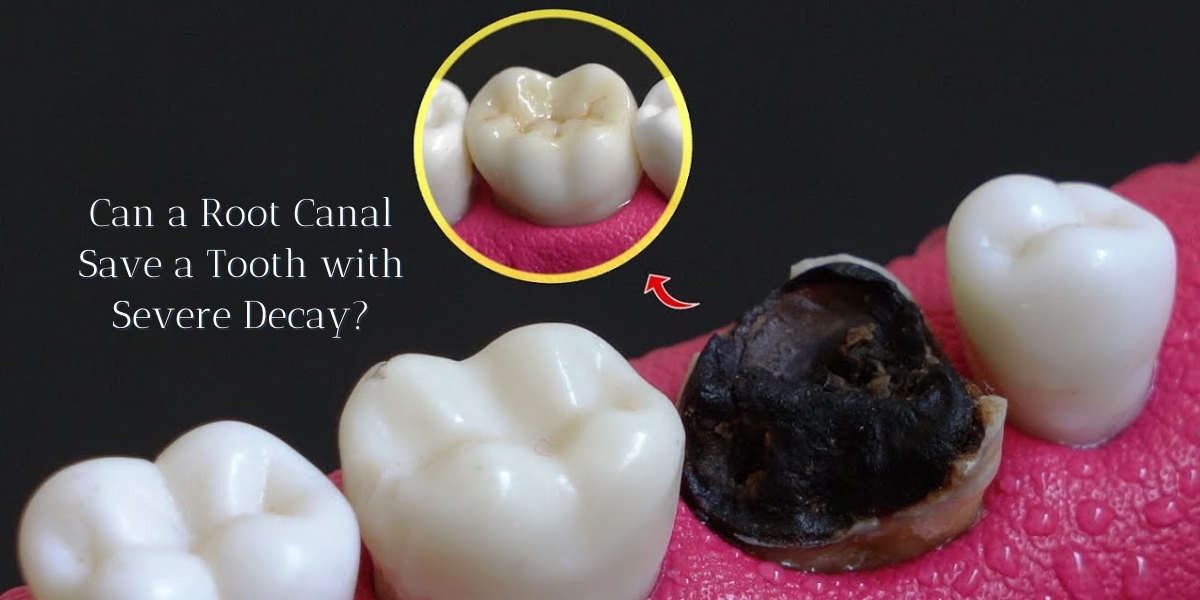Call Us Today 817-737-7668

Severe tooth decay can feel like a ticking time bomb, silently threatening your oral health. If you’re facing intense pain or sensitivity, you might wonder if there’s still hope for your tooth.
Enter the root canal—a procedure that many fear, but it could be your tooth’s best chance for survival. Let’s explore what you need to know about this essential treatment.
In this blog, we’ll break down how severe decay affects your teeth and the signs that indicate it’s time to seek help. We’ll dive into the role of root canals in preserving your natural tooth and discuss their success rates. Plus, we’ll cover what happens if you ignore the warning signs and how to care for your tooth post-treatment.
If you’re curious about how an endodontist can help, stick around! Understanding these key points will empower you to make informed decisions about your dental health. Don’t let fear hold you back—let’s uncover the truth about root canals and their role in saving your smile.
Understanding Severe Tooth Decay
Severe tooth decay doesn’t happen overnight; it progresses through distinct stages. Initially, it starts with demineralization of the enamel, leading to cavities. As decay advances, it penetrates deeper into the dentin and eventually reaches the pulp, where nerves and blood vessels reside. Here’s how it affects your tooth:
- Stage 1: Demineralization – This early stage often goes unnoticed, but white spots may appear on your teeth.
- Stage 2: Cavitation – Cavities form, causing pain, especially when consuming hot or cold foods.
- Stage 3: Dentin Decay – At this stage, decay spreads into the softer dentin layer, increasing sensitivity.
- Stage 4: Pulp Infection – The infection reaches the pulp, resulting in severe pain and swelling, necessitating a root canal.
Understanding these stages helps in recognizing the urgency of treatment. Prompt action can save your tooth from extraction. If you experience any signs of decay, consulting an endodontist in Dallas can make a difference in your dental health journey.
Signs That Your Tooth May Need a Root Canal
Not all tooth pain indicates the need for a root canal, but specific symptoms can signal severe decay that requires immediate attention. Knowing what to look for is crucial for timely intervention:
- Persistent Pain: A constant, throbbing pain in your tooth that doesn’t subside can indicate deeper issues.
- Sensitivity to Temperature: Prolonged sensitivity to hot or cold, even after the stimulus is removed, is a red flag.
- Swelling and Tenderness: Swollen gums around the affected tooth often suggest an infection.
- Discoloration: Darkening of the tooth indicates that decay has reached the pulp.
If you notice these signs, don’t hesitate to seek professional help. Early intervention can prevent complications and save your teeth.
The Role of Root Canals in Dental Health
Root canals often carry a reputation for being painful, but understanding the procedure can ease those fears. Here’s how a root canal can save your tooth:
- Procedure Overview: The process involves removing infected pulp from the tooth, cleaning the inner chamber, and sealing it with a biocompatible material.
- Addressing Severe Decay: This procedure halts the decay process, alleviating pain and preventing further infection.
- Preserving Natural Tooth Structure: By saving your tooth, you maintain your natural bite and smile, which is essential for overall oral health.
Knowing that a root canal can effectively address severe decay may alleviate some concerns about the procedure. It’s an essential step in preserving your dental health.
Success Rates of Root Canal Treatments
Root canal treatments boast impressive success rates, making them a reliable option for saving teeth. Understanding these statistics can provide reassurance:
- Effectiveness: Studies show that around 85-97% of root canal procedures are successful in saving the tooth long-term.
- Factors Influencing Success: Key factors include the extent of decay, the presence of infection, and the endodontist. A timely diagnosis and proper care can greatly enhance outcomes.
These success rates highlight the importance of addressing severe decay promptly. Trusting your dental care to an experienced endodontist increases the likelihood of a favorable result.
What Happens If You Don’t Get a Root Canal
Ignoring severe decay can lead to serious complications. Understanding the risks associated with untreated dental issues can motivate timely action:
- Abscess Formation: Infection can lead to a painful abscess, requiring more invasive treatment or even extraction.
- Spread of Infection: Decay can spread to surrounding teeth and tissues, resulting in systemic health issues.
- Tooth Loss: In severe cases, untreated decay leads to irreversible damage, necessitating extraction.
Long-term consequences on oral health can extend beyond the affected tooth, affecting your overall well-being. Seeking treatment sooner rather than later can help you avoid these complications.
Post-Treatment Care and Maintenance
Proper care after a root canal is crucial for long-term success. Following these guidelines can help maintain your tooth’s health:
- Avoid Hard Foods: Stick to soft foods for the first few days post-treatment to minimize discomfort.
- Oral Hygiene: Continue brushing and flossing gently to keep the area clean and free from bacteria.
- Follow-Up Appointments: Attend all scheduled follow-ups to ensure proper healing and monitor any potential issues.
Being proactive about your post-treatment care will help preserve your tooth and overall dental health.
Consulting with an Endodontist
Finding the right endodontist can make all the difference in your treatment experience. Here’s how to ensure you choose the best professional for your needs:
- Research Credentials: Look for qualifications and experience specific to endodontics.
- Ask About Procedures: Inquire about their approach to root canals and patient care.
- Discuss Costs and Insurance: Understanding costs upfront helps avoid surprises later on.
Your consultation is the perfect opportunity to ask questions and clarify any concerns. The right endodontist will guide you through the process and ensure your comfort throughout your treatment.
Deciding whether a root canal can save a tooth with severe decay is essential for your dental health. Understanding the process, recognizing the symptoms, and seeking timely treatment can make all the difference. Remember, ignoring the signs may lead to complications that could jeopardize your oral health. By consulting with a qualified endodontist, you take a proactive step toward preserving your natural smile. Don’t hesitate—your teeth deserve the best care!





